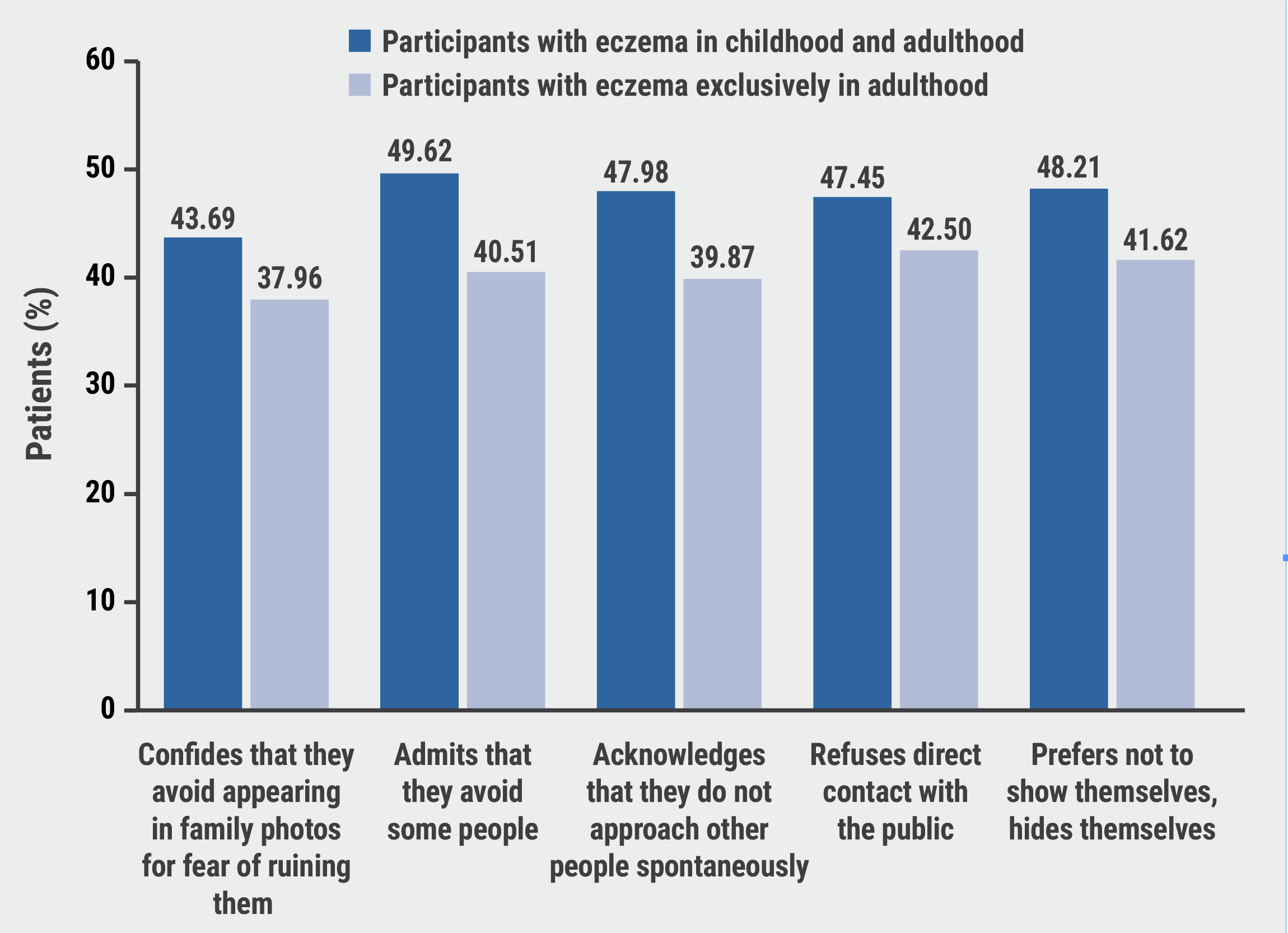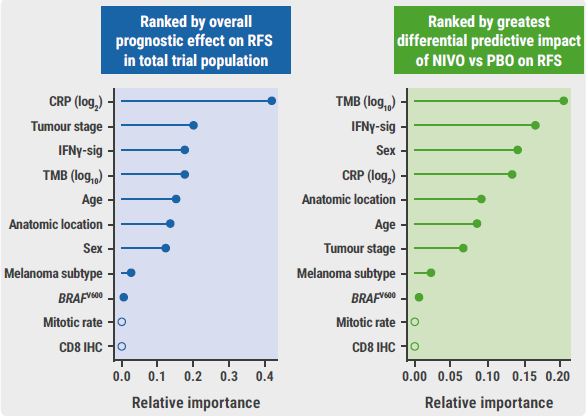https://doi.org/10.55788/76cb3cb6
While the physical manifestations of eczema are extensively studied, its psychological and social implications remain less clear. The “Scars of Life” project aimed to explore how the age of onset of AD affects the severity of its symptoms and their impact on daily and occupational life [1]. The study included data from 30,801 adults in 27 countries on 5 continents. A questionnaire was developed in collaboration with multiple patient associations and international AD experts. It not only included questions related to AD severity but also questions regarding stigmatisation in professional and personal life.
This global project grouped participants based on whether their AD began in childhood (before age 10) or adulthood. To address potential biases in baseline characteristics between groups, a 1:1 propensity score matching with replacement was performed. The results were presented by Prof. Jonathan Silverberg (George Washington University School of Medicine, Washington DC, USA).
Among 10,258 individuals with current AD, those with onset during childhood reported significantly higher levels of social and emotional distress compared with those with adult-onset AD. Specifically, people suffering from AD since childhood had a systematically higher sense of stigmatisation, as measured by the Patient Unique Stigmatization Holistic tool in dermatology (PUSH-D) score (23.0 vs 18.1; P<0.0001).
This stigma influenced all major life areas: 37.3% of respondents who suffered AD since childhood declared that they had faced discrimination at work compared with 29.4% of those who only had AD in adulthood. This stigma also influenced personal relationships. “If we drill down in subdomains, those with both childhood and adult AD had significantly worse outcomes. They avoid photos and avoid people or reduce contact with other people,” Prof. Silverberg said (see Figure).
Figure: Patients who suffered from eczema since childhood have a systematically higher sense of stigmatisation [1]

Furthermore, individuals with early-onset AD were more likely to feel that their disease had hindered their professional careers, family planning, and overall self-confidence, indicating that early-onset AD imposes a long-lasting psychosocial burden.
The "Scars of Life" project underscores the necessity of addressing not only the physical but also the social and emotional aspects of AD, particularly for individuals affected during childhood. “Chronicity appears to contribute to the overall disease burden above and beyond disease severity,” Prof. Silverberg concluded. Thus, AD necessitates the early introduction of adequate long-term management.
- Silverberg JI. Impact of atopic dermatitis in adults depends on its age of onset: Results of the “Scars of Life” project. D1T01.2, EADV Congress 2024, 25–28 September, Amsterdam, the Netherlands.
Copyright ©2024 Medicom Medical Publishers
Posted on
Previous Article
« Second-generation selective PDE4 inhibitor shows promise in AD Next Article
IL-22RA1 inhibition shows potential in atopic dermatitis »
« Second-generation selective PDE4 inhibitor shows promise in AD Next Article
IL-22RA1 inhibition shows potential in atopic dermatitis »
Table of Contents: EADV 2024
Featured articles
Delgocitinib cream outperforms oral alitretinoin in chronic hand eczema
News in Atopic Dermatitis
3-Year results highlight durable effects of IL-13 inhibitor in AD
IL-22RA1 inhibition shows potential in atopic dermatitis
Lifelong psychosocial burden linked to early-onset atopic dermatitis
Second-generation selective PDE4 inhibitor shows promise in AD
What’s New in Prurigo Nodularis and Lichen Planopilaris
Prurigo nodularis: long-term treatment decreases relapse events
JAK1 inhibitor shows promising long-term efficacy in PN
Hand Eczema: End of the Therapeutic Draught
Delgocitinib cream outperforms oral alitretinoin in chronic hand eczema
Atopic hand eczema: similar treatment success for dupilumab and topical delgocitinib
Hidradenitis Suppurativa: New Medications on the Horizon
Targeting IL-17A offers a promising treatment perspective in hidradenitis suppurativa
Bimekizumab shows sustained 2-year efficacy in hidradenitis suppurativa
Familial hidradenitis suppurativa tied to metabolic disease
Psoriasis in 2024
Imsidolimab potential future therapeutic avenue for generalised pustular psoriasis
A new era of care: Artificial intelligence in psoriasis
New Developments in Hair Disorders
Deuruxolitinib significantly improves hair satisfaction in AA
Topical pan-JAK inhibitor mitigates inflammatory biomarkers in frontal fibrosing alopecia
Miscellaneous
Vitiligo: Prolonged facial re-pigmentation maintained with continued ruxolitinib cream
Anti-KIT antibody: the next frontier in CSU treatment?
New targets identified for acute and chronic wound healing
Interesting Posters
PsoBest registry: Biologics dominate treatment for moderate-to-severe psoriasis
Semaglutide improves outcomes for patients with obesity and HS
Advanced BCC: histological subtype and time to complete response may predict tumour recurrence
© 2024 Medicom Medical Publishers. All rights reserved. Terms and Conditions | Privacy Policy
HEAD OFFICE
Laarderhoogtweg 25
1101 EB Amsterdam
The Netherlands
T: +31 85 4012 560
E: publishers@medicom-publishers.com


